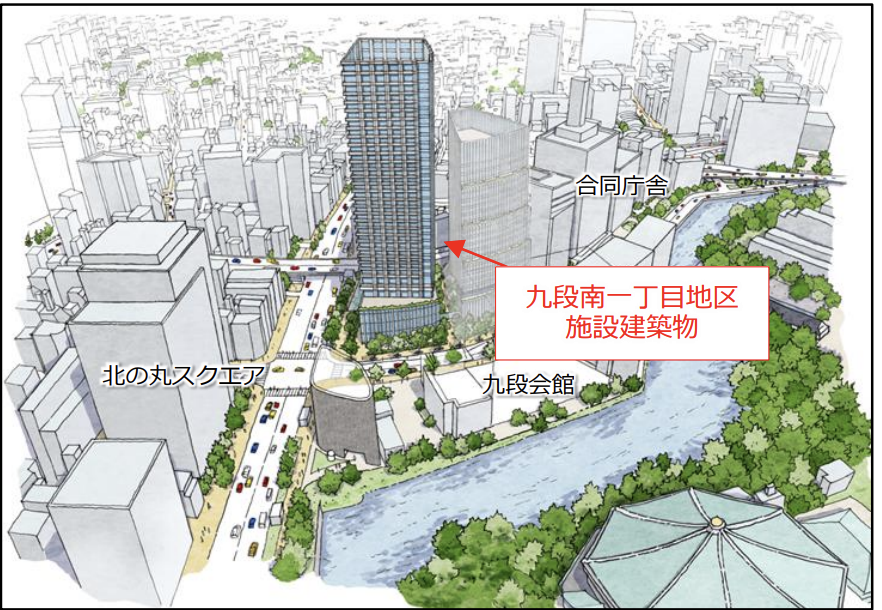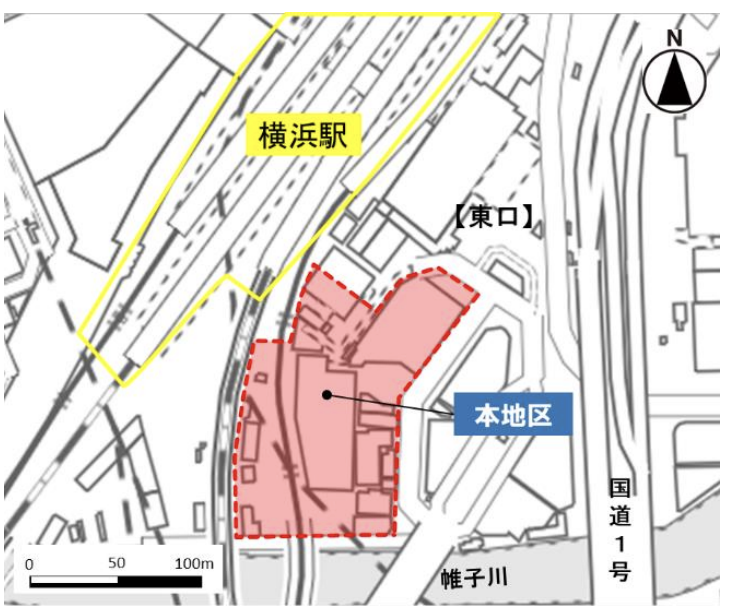The rapid increase in the number of foreign residents in Japan in recent years has brought about significant changes in the real estate market, especially in the rental housing sector: the number of foreign residents reached a record high of 3,410,992 at the end of 2023, a remarkable 10.9% increase over the previous year. This rapid increase has created a new layer of demand in the urban rental market, presenting both opportunities and challenges for property owners. This article will discuss how the increase in foreign residents is affecting the urban real estate market and the key to successful rental management in the midst of this change. In an increasingly internationalized Japanese society, rental management strategies for foreign residents will be an important option for future real estate investment.
The increasing trend of foreign residents and its impact on the real estate market
Trends and Current Status of the Number of Foreign Residents
The number of foreign residents in Japan continues to increase. According to statistics from the Immigration and Residence Management Agency of the Ministry of Justice, the number of foreign residents at the end of 2023 was 3,410,992, an increase of 335,779 (10.9%) from the end of the previous year and a new record high. Over the past 10 years, the number of foreign residents has continued to rise moderately and is expected to continue to increase.
By region, the distribution of foreign residents is uneven. Tokyo has the largest number of foreign residents at 663,362 (19.4% of the national total), followed by Aichi, Osaka, Kanagawa, and Saitama prefectures. The concentration of foreign residents in these metropolitan areas is evident.
| Rank | Prefecture | Number of Foreign Residents |
|---|---|---|
| Number of foreigners residing in Japan 1 | Tokyo | 663,362 people |
| 2 Aichi | Aichi Prefecture | 310,845 |
| 3 | Osaka Prefecture | 301,490 persons |
| 4 | Kanagawa Prefecture | 267,523 |
| 5 | Saitama Prefecture | 234,698 persons |
By status of residence, the increase in the number of foreign residents with advanced professional or technical/personal knowledge/international services status of residence is particularly significant. These groups tend to have relatively stable incomes and seek quality housing.
Specific Impacts on the Real Estate Market
The increase in foreign residents has affected the real estate market in various ways. Specifically, the following changes can be observed
-
Increased demand for rental housing: Demand for rental housing is expanding as the number of foreign residents increases. Demand for rental apartments, especially in central Tokyo, is being boosted by foreigners with high level professional or technical, humanities, or international business status.
-
Increased sales in service and commercial facilities: With the increase in the number of foreign visitors to Japan, sales in the service industry, such as lodging, entertainment, and transportation, as well as in department stores, are growing.
-
Revitalization of hotel construction: The expansion of inbound demand has led to a rush of hotel construction in major cities and tourist destinations.
-
Rising land prices: Land prices are rising in major tourist destinations and urban centers due to increased demand from a growing number of foreign tourists and residents.
-
Soaring condominium prices: Especially in the 23 wards of Tokyo, condominium prices continue to rise due to increased real estate purchases by foreign investors and increased demand from foreign residents.
| Impact Areas | Specific Changes |
|---|---|
| Rental market | Increased demand for rental condominiums in central Tokyo, declining vacancy rates |
| Tourism-related | Rush of hotel construction, increase in short-term stay facilities |
| Commercial facilities | Increase in service industry sales, expansion of inbound facilities |
| Land prices and property prices | Rising land prices in major tourist areas, soaring condominium prices in Tokyo's 23 wards |
| Real estate investment | Increased investment by foreign investors |
Impact of foreign investors on the real estate market
In parallel with the increase in the number of foreign residents, foreign investors are investing more actively in the Japanese real estate market. According to a survey by JLL, a global full-service real estate services firm, Japanese real estate investment in the first three quarters of 2023 totaled 2,748.3 billion yen, up 40% from the same period last year. This strong performance comes at a time when real estate investment worldwide is down 50% year over year, indicating the unique strength of the Japanese market.
There are six main reasons why foreign investors are purchasing Japanese real estate
- Few restrictions on foreign ownership
- Relatively low Japanese real estate prices
- High yields (3-10%)
- Low geopolitical risk (political stability)
- Undervalued due to the recent depreciation of the yen
- Easy accessibility from other Asian countries
This increase in the number of foreign investors has supported real estate demand, especially in central Tokyo, and has also contributed to the improved liquidity of properties. Japanese real estate investment by foreigners is expected to continue to increase in the future.
Challenges and Risks of Accepting Foreign Residents
Common problems with foreign tenants
When accepting foreign tenants, various troubles may occur due to differences in culture and lifestyle. Examples of major troubles include the following
-
Noise problems: Because of the cultural background that considers one's home as a social gathering place, there are cases of loud talking and footsteps when inviting friends over. Especially in wooden apartments, soundproofing measures are often inadequate, which can easily lead to neighborhood problems.
-
Garbage segregation problems: The detailed garbage segregation rules unique to Japan and the use of designated bags on designated days and days are not understood, and violations are likely to occur.
-
Multiple tenants living together: In some cases, there are more tenants living together than anticipated at the time of contract. This not only increases the burden on the building and causes neighborhood problems, but may also hasten the aging of the building.
-
Unauthorized cancellation and return: There is a risk that rent and restoration costs may not be collected if a tenant leaves without giving notice to vacate the premises and without contacting the owner.
-
Difficulty in confirming payment of rent: In some cases, it is not possible to open a bank account for tenants who have been in Japan for less than six months, so payment must be made by bank transfer. In many cases, the name on the bank account and the tenant's name do not match, making management complicated.
| Type of Trouble | Main causes | Examples of countermeasures |
|---|---|---|
| Noise | Differences in cultural backgrounds, use of home for social gatherings | Explanation at the time of contract, soundproofing measures, periodic checks |
| Garbage separation | Lack of understanding of rules, language barrier | Multilingual information, manual with photos |
| Multiple people living together | Cost sharing, inviting relatives/friends | Clear restrictions at the time of contract, regular visits |
| Unauthorized cancellation | Sudden return, lack of understanding of procedures | Use of guarantee company, multiple contacts |
| Rent management | Difficulty in opening an account, complexity of remittance procedures | Introduction of credit card payment |
Communication issues due to language and cultural barriers
Many problems with foreign tenants are caused by lack of communication due to language and cultural differences. The explanation of important matters and contracts in Japanese lease agreements are full of technical terms that are difficult even for Japanese to understand. For foreigners, the hurdle is even higher, and a lack of understanding of the contract can lead to problems.
In addition, there are cases where it is difficult for foreigners to understand Japanese-specific housing facilities (e.g., how to use air conditioners, how to operate water heaters, etc.) and living rules (e.g., noise, garbage disposal, neighborhood interaction, etc.) due to cultural differences. When explaining these matters, language barriers can prevent adequate communication, which can lead to problems.
Legal Risks and Contractual Considerations
There are several legal risks and contractual considerations when signing a rental contract with a foreigner:
-
Confirmation of status of residence and period of stay: It is important to confirm the resident's status of residence and period of stay, and clearly state in the contract what to do after the period of stay expires.
-
Securing a guarantor: Since it is difficult for many foreigners to have a joint guarantor in Japan, you should consider using a rent guarantee company that can provide guarantees for foreigners.
-
Risk of unauthorized subleasing: Subleasing or subleasing to someone other than the contractor is a violation of the contract, and a clause clearly prohibiting such subleasing or subleasing should be included in the contract.
-
Fulfillment of obligation to explain: In order for the tenant to understand the explanation of important matters, explanatory materials must be prepared in his/her native language or English, and consideration must be given to providing an interpreter.
-
Agreement on restoration of the property to its original condition: It is important to clearly agree on the scope of restoration and the burden of costs in order to avoid problems when vacating the property.
Key Points for Successful Rental Management for Foreign Residents
Selection of property type and facilities
In order to achieve success in managing rental properties for foreign residents, it is important to select property types and facilities that meet the needs of tenants. While taking into consideration the characteristics of each nationality, the following points should be focused on:
-
Responding to common needs: It is fundamental to meet the requirements of many foreigners regardless of nationality. Specifically, keep initial costs low, provide furnished apartments, provide Western-style rooms with wood flooring and closets, and separate bathrooms and toilets, etc.
-
Focus on location: Properties with easy access to Japanese language schools, universities, and workplaces are expected to be in high demand. Foreigners tend to prefer to live within walking or biking distance rather than taking the train.
-
Consideration of nationality characteristics: For example, Southeast Asians tend to prefer low-priced apartments (30,000-40,000 yen) for room-sharing, Chinese and Koreans prefer apartments with a gas stove for single occupancy, and Westerners prefer larger apartments (30 square meters or more).
-
Communication environment: Free Wi-Fi and high-speed Internet access are major attractions for foreigners who value communication with their home country.
| Characteristics by Region | Characteristics and Preferred Property Conditions |
|---|---|
| Southeast Asian | Rent in the 30,000-40,000 yen range, room-sharing assumed, older 2K available |
| Chinese and Korean | Single-person living, gas stove preferred, sunlight is important |
| European, American, Australian | Focus on space (30㎡ or more), Japanese-style rooms only partially available, furniture and appliances welcome |
Tenant Screening and Contract Points
When screening and contracting with foreign tenants, special attention should be paid to the following points:
-
Confirmation of status of residence and period of stay: Check the resident card to confirm the status of residence and period of stay. In particular, tenants with stable status of residence such as "Highly Specialized Worker" or "Technical/Humanities/International Services" are expected to be long-term tenants.
-
Verification of income and ability to pay: We check pay stubs and proof of bank balance to determine ability to pay rent. In general, there is a guideline that the maximum rent should be about 30% of monthly income.
-
Use of a Guarantee Company: Using a guarantee company that can handle foreign nationals can reduce the risk of rent arrears or eviction without permission. The website of the Ministry of Land, Infrastructure, Transport and Tourism provides a list of rent guarantee companies that can accommodate foreigners.
-
Multilingual Contracts and Explanations of Important Matters: To ensure a better understanding of the contract, contracts and explanations of important matters are prepared in English and other languages as well as in Japanese. The Ministry of Land, Infrastructure, Transport and Tourism has published a multilingual lease agreement template.
-
Secure emergency contacts: Secure multiple emergency contacts in Japan (e.g., company supervisor, Japanese language school teacher, etc.) to ensure a smooth response in the event of a problem.
Key Points in Selecting a Management Company
Selecting the right management company is the key to success in rental management for foreigners:
-
Track record in dealing with foreign residents: Choose a management company that has a wealth of experience in accepting foreign tenants and know-how in dealing with problems.
-
Availability of multilingual staff: Having staff who speak English or the resident's native language will ensure smooth communication.
-
24-hour support system: A management company with a system that can promptly respond to inquiries and problems from foreign residents is desirable.
-
Support for creating multilingual manuals: A management company that can support the creation of multilingual manuals explaining living rules, how to use facilities, etc. is a great help.
-
Ability to propose measures to prevent and respond to problems: Choose a management company that can propose ways to prevent problems specific to foreign residents and measures to deal with them if they occur.
Specific measures to prevent problems
Specific measures to prevent problems with foreign tenants are as follows
-
Creation of a multilingual living manual: A multilingual manual with many pictures and diagrams should be created to explain the rules for garbage disposal, noise concerns, how to use the facilities, and so on.
-
Regular communication: After moving in, regular status checks and communication will enable early detection and early resolution of any problems. It is especially important to follow up frequently for about 3 months after moving in.
-
Use of visual postings: In common areas, postings should be placed that can be intuitively understood by using pictures and diagrams to explain the rules for garbage separation, etc.
-
Devise rent payment methods: Provide easy payment methods for foreign residents, such as introducing credit card payment.
-
Reinforcement of confirmation at the time of contract renewal: Thoroughly check the occupancy status and status of residence at the time of contract renewal.
| Trouble Prevention Measures | Specific implementation methods |
|---|---|
| Multilingual manuals | Prepare explanatory materials with photos and illustrations in English, Chinese, etc. |
| Regular communication | Visit once a month for the first 3 months, then check every 3 months thereafter |
| Visual postings | Pictograms in common areas |
| Diversified payment methods | Credit card payment, account transfer, electronic money |
| Confirmation at the time of contract renewal | Confirmation of residence status, renewal of status of residence, income status |
Future real estate market and preparation for accepting foreigners
Trends in Legal Amendments and Impact on Rental Management
The legal system for accepting foreign nationals has been changing in recent years, and in June 2024, the Immigration Control Act was revised with the following two major changes:
-
Integration of My Number Card and Residence Card (Law No. 59 of 2024): This amendment will strengthen the linkage between identification of foreign residents and various administrative procedures. For rental operators, this may simplify the identification verification and various procedures at the time of tenant screening.
-
Establishment of the Training and Employment System (Law No. 60 of 2024): The "Training and Employment System" was established as a new system for accepting foreign nationals to replace the existing technical internship system. Under this system, it will be possible to provide foreign nationals with longer-term employment opportunities while enhancing their experience and skills.
These legal revisions are expected to be a factor in encouraging the increase in the number of foreign residents in the future, further expanding the demand for rental housing. In particular, the increase in the number of mid- to long-term residents under the "foster employment system" may lead to stable rental demand.
Future Market Outlook and Management Strategy
The trend of increasing foreign residents is expected to continue, and management strategies that pay particular attention to the following points will be effective
-
Regional expansion of demand: Foreign residents previously concentrated in metropolitan areas such as Tokyo are expected to spread to regional cities in the future. Local regions also need to be prepared to meet rental demand for foreign residents.
-
Increased demand for high-quality properties for high-level personnel: Demand for high-quality rental housing is expected to increase as the number of foreign residents with high-level professional or technical, humanities, or international business status of residence increases.
-
Strengthening partnerships with companies: Companies that accept foreign workers are increasingly supporting them in securing housing, and direct contracts and partnerships with companies will be an effective strategy.
-
Utilization of digital technology: Providing services that leverage digital technology, such as online previews, VR property introductions, and multilingual AI chat support, will lead to differentiation.
Future rental management will require the establishment of a management system that is both flexible enough to meet the needs of diverse foreign residents and prevent problems.
Conclusion
This article has explained the impact of the rapid increase in the number of foreign residents on urban real estate markets and the key points for future rental management. The main points can be summarized as follows
-
The number of foreign residents in Japan has surged to over 3.41 million, a 10.9% increase over the previous year. They are concentrated in Tokyo and other major metropolitan areas, and the percentage of highly specialized and technical personnel is increasing.
-
Impact on the real estate market: The impact has been multi-faceted, including increased rental demand, higher service industry sales, a rush to build hotels, and rising land and condominium prices. Real estate investment by foreign investors is also increasing, with a 40% increase in 2023 over the previous year.
-
Challenges and Risks: There are risks of problems arising from differences in culture and customs, such as noise, garbage segregation, multiple tenants living together, unauthorized termination of lease, and rent control. Lack of communication due to language barriers and legal and contractual issues also require attention.
-
Key points for success:
- Selection of property types and facilities that meet the needs of foreigners
- Appropriate tenant screening and multilingual contract procedures
- Selection of a management company with experience in handling foreign residents
- Prevention of problems by creating multilingual manuals and regular communication
-
Future Prospects: System changes are underway to promote acceptance of foreign nationals, such as the creation of a "foster employment system" under the revised Immigration Control Act and the integration of residence cards and My Number cards. Demand is expected to expand from metropolitan areas to regional areas and increase for high-quality properties for highly skilled personnel.
Rental management for foreign residents is a promising market that can be expected to generate stable income with appropriate preparation and measures. By understanding cultural differences and focusing on communication, many challenges can be overcome. In future real estate investment, a strategy that incorporates the new demand segment of foreign residents will be an important success factor.
Frequently Asked Questions
Q1: What is the most important point when accepting foreign residents?
A1: The most important factor is communication. To overcome language and cultural differences, it is important to prepare explanatory materials and manuals in multiple languages, and to build a relationship of trust through regular contact. It is also important to utilize a management company and a guarantee company that are experienced in dealing with foreigners.
Q2: What facilities are required for rental properties for foreigners?
A2: Basically , "separate bathroom and toilet," "wooden flooring," "closet," and "internet access" are important. In addition, many foreign tenants prefer "furnished" properties, and are especially pleased with basic furniture such as a refrigerator, washing machine, air conditioner, bed, table, and chair. Since different nationalities have different preferences, consider choosing the right equipment for your target market.
Q3: How can I prevent rent problems with foreign tenants?
A3: The following measures are effective in preventing rent problems:
- Use of a guarantee company that accepts foreign nationals
- Introducing credit card payment
- Confirmation of proof of bank balance when moving in
- Cooperation with employers and educational institutions
- Clear explanation of payment terms at the time of contract (in multiple languages)
Q4: What are the main residency statuses of the increasing number of foreigners?
A4: In recent years, the "Highly Specialized" and "Technical/Humanities/International Services" statuses have been particularly increasing. Foreigners with these statuses tend to have relatively high income, stable employment, and seek good quality housing. In addition, the number of foreigners with "Training and Employment" status, newly established in the 2024 revision of the Immigration Control Act, is also expected to increase in the future.
Q5: Why are foreign investors buying Japanese real estate?
A5: The main reasons for foreign investors to purchase Japanese real estate are (1) almost no restrictions on foreign ownership, (2) relatively low property prices compared to other countries, (3) stable yields of 3-10%, (4) low country risk due to political stability, (5) the yen tends to weaken, and (6) geographical proximity to their home country (especially Asian countries).
Reference Information
- Statistics on Foreign Residents", Immigration and Residence Management Agency, Ministry of Justice
- Ministry of Land, Infrastructure, Transport and Tourism "Guidelines for Facilitating Foreign Residents' Move-in to Private Rental Housing
- Ministry of Health, Labour and Welfare: "Reporting Status of Employment of Foreign Nationals" (Japanese only)
- JLL, "Real Estate Investment Market Trends in Japan" (Japanese only)
- Ministry of Justice, "The 2024 Revision of the Immigration Control and Refugee Recognition Act" (Japanese only)
In an increasingly globalized Japanese society, rental management for foreign residents will become increasingly important. Let's take advantage of this new market opportunity with appropriate preparation and measures. First, you can accumulate experience and know-how by starting to accept foreign residents in some of your properties as a measure against vacancies. Why not take the social change of increasing foreign residents as a new possibility for rental management and actively engage in it?

Daisuke Inazawa
Representative Director of INA&Associates Inc. Based in Osaka, Tokyo, and Kanagawa, he is engaged in real estate sales, leasing, and management. He provides services based on his extensive experience in the real estate industry. Based on the philosophy that “human resources are a company's most important asset,” he places great importance on human resource development. He continues to take on the challenge of creating sustainable corporate value.

.png)













